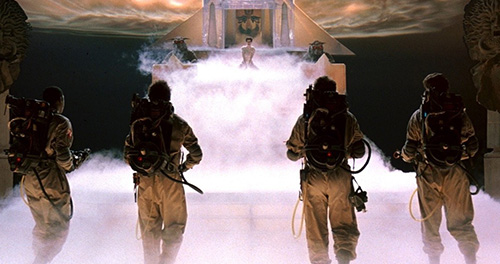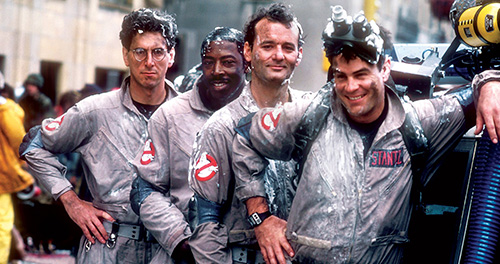[9]
When New York City becomes increasingly afflicted with ghost-sightings and demonic possessions, it’s up to a rag-tag team of self-proclaimed ‘Ghostbusters’ to save the world from the imminent arrival of a destructive, ancient god. Ghostbusters succeeds as both a comedy and a horror fantasy, thanks largely to Dan Aykroyd and Harold Ramis’ jaunty writing and Ivan Reitman’s sure-handed direction.
Bill Murray steals the show as the most skeptical and least scholarly of the ghostbusters. His character’s nonchalance toward supernatural events gets repeated laughs throughout the film. Akyroyd and Ramis play his more serious-minded partners. They get several of their own laughs from their more earnest commitments to the metaphysical. Rick Moranis and Annie Potts are quite funny in meaty supporting roles, but upon my latest rewatching of the film, it’s Sigourney Weaver who impressed me the most.
Weaver’s character serves as both a plot device and romantic interest for Murray’s character. She smart enough to seek help when spooky things happen to her, but not gullible enough to buy all of Murray’s bullshit. She’s sweetly dismissive of Moranis’ character, but more aggressively so with Murray’s. Her performance, perhaps more than anything else, helps the film strike the perfect tone somewhere between belief and incredulity. And when she’s possessed by evil spirits half-way through the film, she gets to ham it up with a libidinous performance sprinkled with moments of good comic timing. Not anyone could have played this role, but Weaver makes it look effortless.
With its engaging script and inspired casting, Ghostbusters was destined to be a good movie. John DeCuir’s production design, a killer collection of pop tunes, a great score by Elmer Bernstein, and terrific visual set-pieces (the Stay-Puft Marshmallow man is the best), Ghostbusters is more than good — it’s unforgettable.
With Ernie Hudson and William Atherton.
Oscar Nominations: Best Visual Effects, Original Song (“Ghostbusters”)


